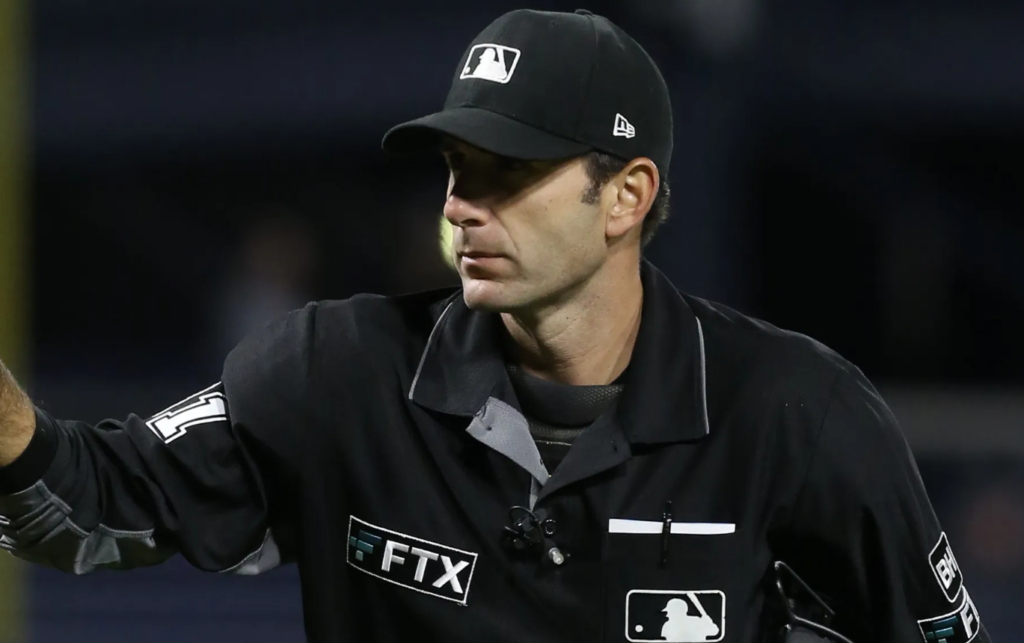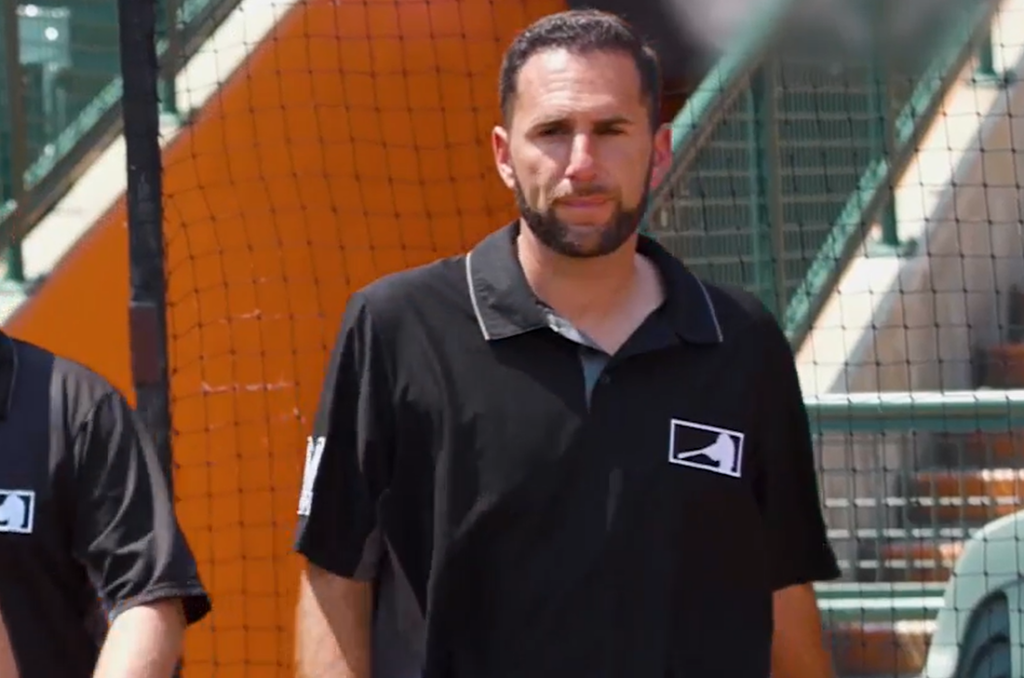
Let’s talk about the kind of story that makes MLB purists shudder—an umpire getting tossed from the game, not for bad calls behind the plate, but for gambling violations.
And not just any umpire—Pat Hoberg, a guy who was widely regarded as one of the best in the business, the kind of umpire you wanted behind the plate in a big game.
MLB Investigation That Led to His Downfall

Major League Baseball upheld its decision to fire Hoberg after an investigation found that he shared sports betting accounts with a friend—who happened to be a professional poker player and, more importantly, bet on baseball.
The league didn’t find evidence that Hoberg himself bet on baseball or tried to influence any games, but it did uncover a few things that were, let’s just say, problematic.
For one, he deleted electronic messages related to the investigation. And for another, his devices were used to place a staggering amount of bets—over $700,000 in total—on football, basketball, hockey, and golf.
Hoberg Took Full Responsibility

Let’s be clear: the rule in Major League Baseball is pretty simple. If you’re an umpire, you can’t bet on baseball. Period. That’s a rule as old as the game itself, dating back to the Black Sox scandal of 1919.
And while MLB never proved that Hoberg violated that specific rule, the fact that he shared accounts with someone who did and then tried to wipe digital evidence? Yeah, that’s a bad look.
Hoberg, for his part, took full responsibility in a statement, calling it an embarrassing mistake and vowing to learn from it. He also doubled down on the fact that he never bet on baseball or provided inside information.
The Major League Baseball Umpires Association backed him up to some extent, saying they would never defend an umpire who bet on baseball but ultimately respected MLB’s ruling.
MLB Had No Choice

Commissioner Rob Manfred didn’t mince words in the league’s statement, pointing out that while there was no proof of game manipulation, the mere appearance of impropriety was enough to justify the most severe punishment—termination.
And look, that’s a fair point. Baseball’s entire foundation rests on trust. The whole game collapses if fans even suspect that umpires, players, or coaches might have financial motives influencing their decisions.
Let’s not forget that Hoberg was an absolute star in his field. This is the guy who called a literal “perfect game” in the 2022 World Series—not a pitching feat, but an umpiring one, getting all 129 ball-and-strike calls correct.
That level of accuracy is nearly unheard of, and it’s why his peers and players respected him. The league is hoping to get that same level of accuracy from the robo-umps about to be tested in Spring Training.
What Hoberg Can Do Next

So, what’s next for him? He can apply for reinstatement in 2026, but the road back won’t be easy.
MLB takes integrity issues seriously, and even though he never bet on baseball himself, his actions crossed a line the league can’t ignore.
It’s a tough lesson but one that underscores just how high the stakes are when it comes to gambling and professional sports.
At the end of the day, it’s another reminder that in baseball—just like in life—your reputation is everything. And once that trust is broken, it’s tough to earn it back.


